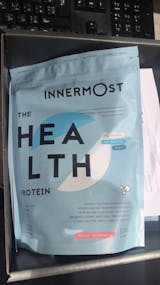You’re probably here because you’ve been working hard to meet your fitness goal, trying to lose some weight, and feeling a little stuck in your tracks.
Do the thoughts; “I’m doing everything right, why am I not losing weight?” or “Why am I gaining weight even though I’m dieting?” ring a bell? Don’t worry, you’re not alone. And we’re here to help you get to the bottom of this conundrum.
Every problem has a solution, after all!
There are a few reasons why you might be gaining weigh on your diet, so please don’t lose hope! We’re proud of the progress you’ve been making (whether you’re proud of yourself, or not) but we’re here to help, too. It’s important to remember that exercising alone isn’t enough to lose weight. There are some pretty vital dietary changes that need to be made, too.
Nothing too excessive, of course.
If you haven’t already started implementing The Lean Protein into your diet, that’s step one. For the next steps, though, here are some of the reasons why you may be dieting but gaining weight (and we’re sure one or two of these will surprise you).
-
Diet mistake #1: You’re still drinking your sugar
Ditched the packets of crisps, chocolate bars and other sugary treats? Great start! Whilst it’s vital to cut down your sugar intake to lose weight (and improve your health), meals and snacks aren’t the only place where sugar lurks, we’re afraid.
And you may be thinking: “I don’t drink fizzy drinks, though?” Well, unfortunately, we’ve got some bad news. It’s not just the fizzy pop that’s packing the sugar.
Packaged fruit smoothies, hot chocolate, fruit juices, tea, coffee – you name it, they all have a pretty high sugar content, so make sure you’re watching the sugar here too, people!
-
Diet mistake #2: You’re not getting enough sleep
Don’t mind us – just the Innermost team telling you to make sure to get those eight hours sleep (again). Nothing to see here…
-
Diet mistake #3 You’re not eating a balanced diet
Like we said, we believe you – we know you’ve cut down on those carbs and sugary treats. We get it! But you need to be including a good amount of protein into your diet too to be seeing the results. High protein foods are an essential for the diet of anyone who is trying to lose weight, and that’s because these high protein foods are great metabolism boosters.
Metabolism boosters lead to an automatic reduction in calories (and cravings, too) so make sure you’re eating your protein!
If you’re vegetarian, don’t like meat, or just prefer to get your protein through a delicious shake, now’s definitely a good time to start implementing The Health Protein. Veggie and delicious – a winning combo.
Our favourite foods high in protein include:
- Eggs
- Cottage cheese
- Milk
- Greek yoghurt
- Broccoli
- Nuts
- Meats
- Baked beans
- Guava fruit
-
Diet mistake #4: You’re eating too many calories
At this point, you may be screaming at the screen. And for that, we’re sorry. We hear you. We do. We know you’ve cut down your portions.
Whilst you’ve cut down your portions and altered your diet… have you reduced the number of calories you’re consuming? This could be the key, and diet mistake four takes us back nicely to diet mistake one.
For reference, the average male should be consuming 2,500 calories, and the average woman should be consuming around 2,000. Of course, this varies from person-to-person, but this is a pretty good ballpark to go by if you’re unsure.
Summary
Whilst you may be feeling frustrated that you’re putting the effort into your diet but not seeing the results you’re looking for, it’s important to remember that dieting, reaching your fitness goals and losing weight are ultimately long-term goals.
It’s absolutely true that quick results are pretty unattainable, so don’t feel downhearted if you aren’t seeing your desired results straight away. It’s all part of the process. On the subject, too, we thought it was pretty important to note that you should make sure that the fitness techniques you are using are healthy, and you’re not going to extremes to try and force results quickly.
As the old tale goes… slow and steady wins the race, right?
If weight is a sensitive topic for you, you’re struggling with your relationship with your weight, food, or body image – or anything, for that matter, please don’t hesitate to reach out to someone you care about. What’s more, if you don’t have anyone in your life that you feel that you can approach to discuss topics such as these, there are plenty of fantastic charities and organisations that are always on hand to help (and don’t forget you can always go to your GP, too!). Here’s a handy guide to talking about mental health, too.
Here are some amazing mental health charities that you can always get in touch with:
























